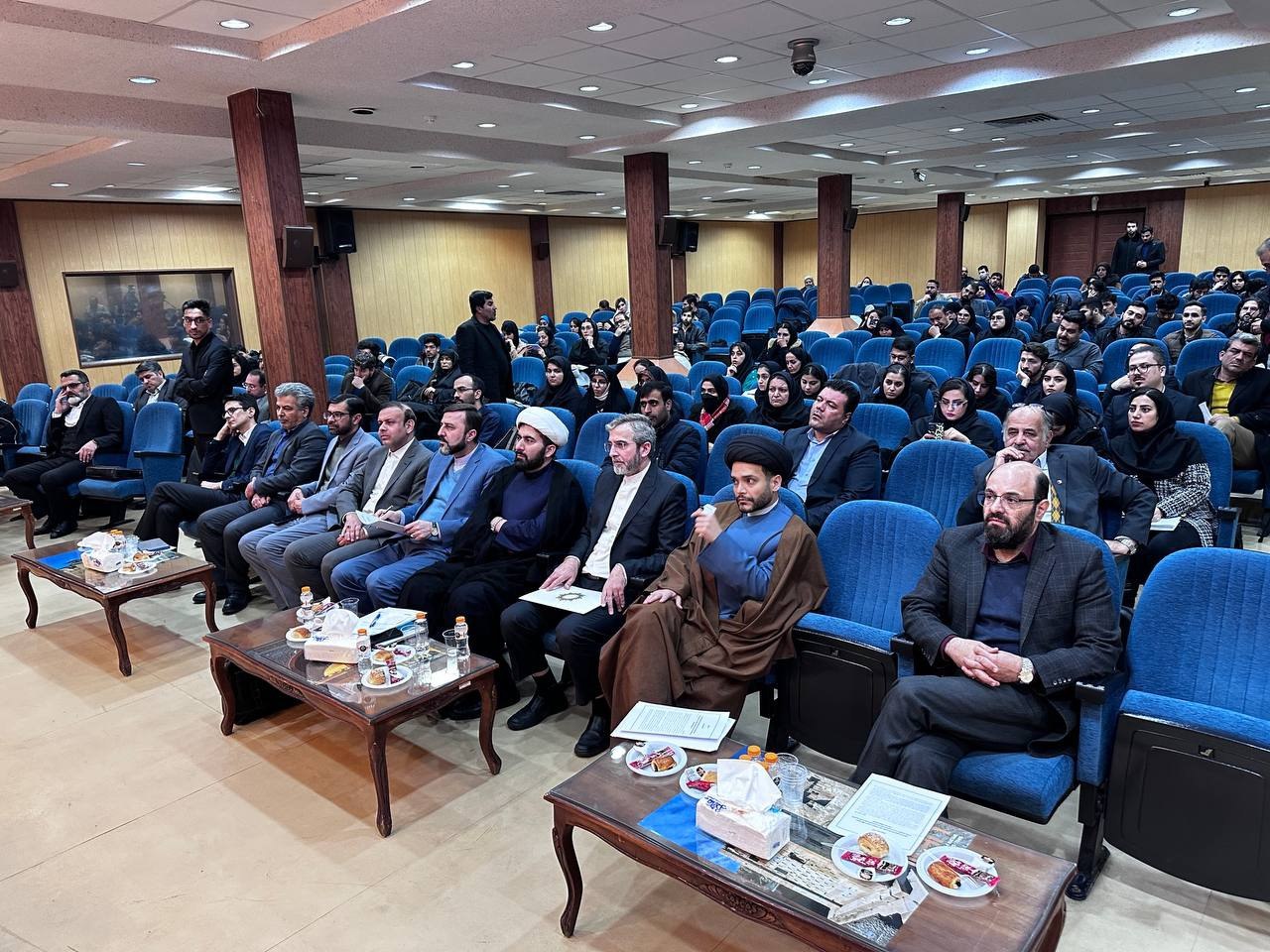HCHR_ Kazem Gharibabadi, the Vice-President of the Judiciary for International Affairs and the Secretary-General of the High Council for Human Rights, said during a speech at this moot court: “sanctions are considered as a tool of war and even more destructive than war because of their huge impact and collective punishment of people.”
He continued: “Now the wars are limited and mostly affect a specific region or field, but with the imposition of sanctions, a whole nation is affected.”
Gharibabadi called sanctions a crime against humanity and added: “sanctions violate the right to development, welfare, education, housing, health and all the rights of the people in the target country.”
Referring to the two terms "legality" and "legitimacy” of sanctions, the Secretary-General added: "an act can be legal, but not accepted by the international community, so, it won’t be legitimate. Regarding unilateral sanctions, it should be said that they are neither legal nor legitimate.”

He reminded: “the issue of smart sanctions was raised when 500 thousand children lost their lives in Iraq, but the reality is that smart sanctions are just a slogan and food and medicine exemptions are in practice not possible due to the sanctions on financial channels, Banking, insurance and transportation. Even assuming the exemption of medicine and food from the sanctions, the responsibility of the sanctioning countries does not end, because it does not allow the people to benefit from their human rights”.
Referring to the report of Alena Douhan, the Special Rapporteur of the UN on Negative Impacts of UCM on the Enjoyment of Human Rights, Gharibabadi said: “in her report, it is stated that sanctions have affected all the human rights of the Iranian people."
Referring to the right to health, he said: “the Special Rapporteur stated in her report that in the field of special diseases, Iran has faced problems in providing high-quality medicine and medical equipment”.
Pointing to the impact of sanctions on the right to health of the people of target countries, including Iran, citing Douhan’s report, Gharibabadi emphasized: “Despite Iran's capability in the field of medicine production, it witnessed deadly consequences for the vulnerable group of patients due to sanctions. In a part of Douhan’s report following her visits to medical centers, it is stated that sanctions have increased the death rate of thalassemia patients to 4 times.
The Secretary General of the HCHR pointed out the inhumane action of the Swedish company in not delivering dressings to the patients due to the sanctions, and emphasizing the atmosphere of uncertainty caused by the over compliance to the sanctions, he said: “As a result of imposing unilateral sanctions and over compliance of them, an atmosphere of uncertainty is created among businesses, which means that foreign companies, knowing that some areas are not subject to sanctions, are not willing to cooperate, due to the fear of being punished by the American regime.
He added: “The concern of the next American punishments has caused companies and organizations to adhere too much to the sanctions”.
The Vice-President of the Judiciary for International Affairs stated: “due to the wide impact of sanctions on the people of the target countries, sanctions are considered as a tool of war and can be more damaging than sanctions” he added: “ Sanctions are more destructive than conventional limited wars because the people of the whole country are targeted. this makes the responsibility of the drafters and implementers of sanctions heavier, because they are committing crimes against humanity. Unilateral sanctions violate human rights and are illegal and illegitimate and can be pursued in national and international courts”.
It is necessary to explain that the subject of this moot court was the complaint of a group of patients of government A against government B due to the compliance of the pharmaceutical company registered in the territory of that government with the unilateral sanctions of the third government.
The speakers of this event were Kazem Gharibabadi, the Secretary-General of the High Council for Human Rights, Ali Bagheri kani, the Political Deputy of the Ministry of Foreign Affairs, and Mehdi Hadi, the Head of the Judiciary Research Institute; In addition, Alena Douhan, the UN Special Rapporteur on the Negative Impacts of the Unilateral Coercive Measures on the Enjoyment of Human Rights, also gave a virtual speech in this motor court.
The senior judges of the mentioned moot court were Mohammad Reza Ziaei Begdali, Tavakol Habibzadeh and Behzad Razavi Fard.